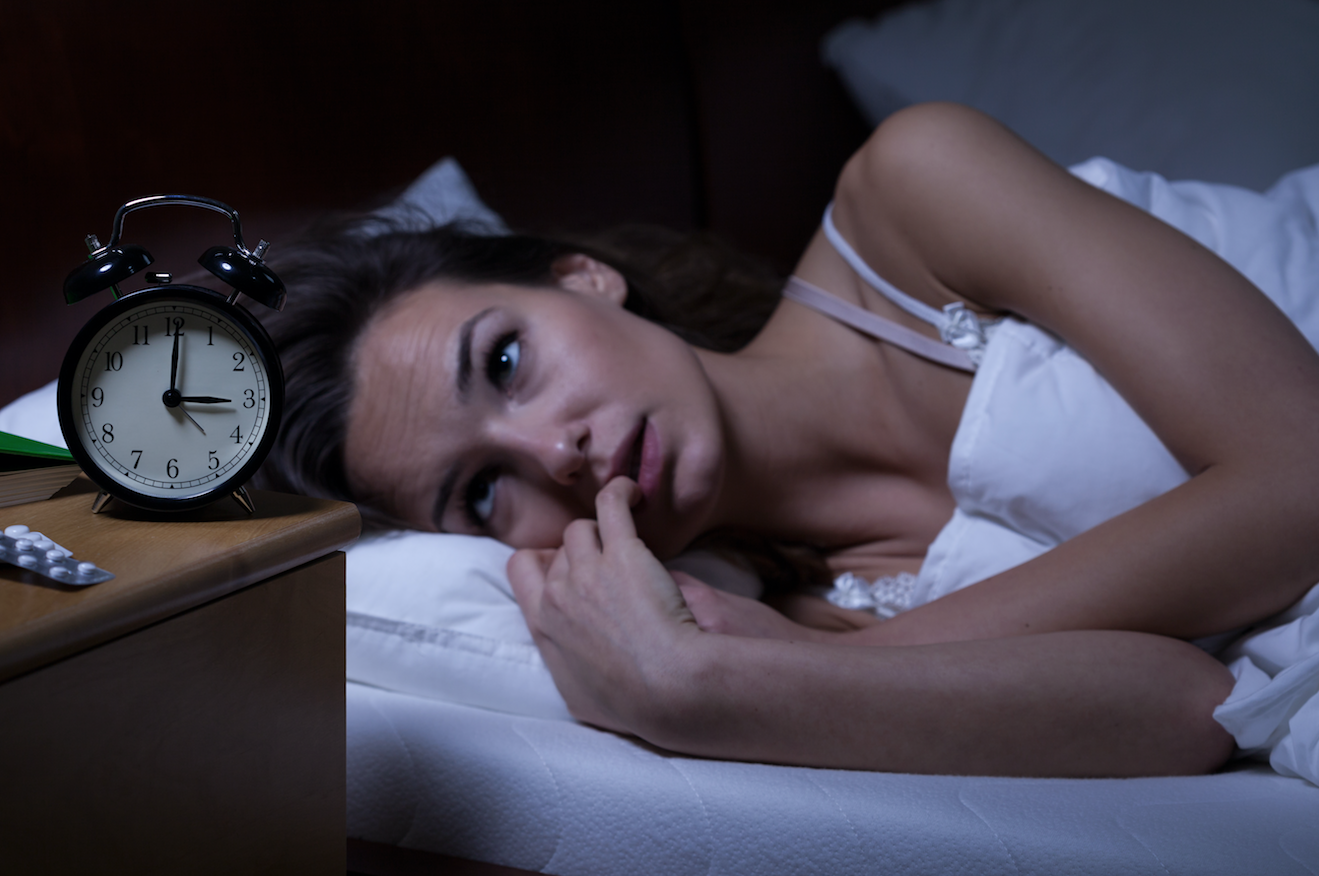Your mind races, you feel restless and you stare at your clock as the hours tick by. Insomnia is a common condition that results in difficulty initiating and maintaining sleep, and the National Institutes of Health estimate that 10 percent of the population suffer from the condition.
There are many causes for insomnia, most commonly stress, depression and anxiety. Medical conditions such as restless leg syndrome, sleep disorders, heart disease and side effects from medications can also be culprits. These causes of insomnia are exacerbated when we practice poor sleep hygiene, which includes maintaining irregular sleep hours, drinking alcohol prior to bed time, sleeping with pets, watching TV and eating in bed.
How can we improve our sleep hygiene? According to Galina Bogorodskaya, a physician at Southeastern Integrated Medical (SIMED) Sleep Center in Gainesville, the key to better sleep is routine. “Go to bed when sleepy, and get out of bed when you wake up in the morning. This could take six or eight, or even nine hours,” said Bogorodskaya. “Different people need different amounts of time for sleeping, but it should be the same for each person. Prolonged, more than 30-minute daytime naps, cause the same difficulty with falling asleep.”
Bogorodskaya also recommended falling asleep in a cooler environment. The circadian sleep-wake center and the temperature-regulating center are “neighbors in the brain.” Ideal bedroom temperatures are 67–68 F. She also recommends avoiding alcohol and caffeinated beverages for at least four hours prior to bed time.
Our reliance on electronics also may be impeding sleeping habits. “It’s important to turn off electric devices at least one hour before sleep, if possible,” Carolyn Ivey, manager of the Sleep Disorders Center at North Florida Regional Medical Center, said. “Blue light emitted by phones and electronic devices can interfere with melatonin production and disrupt the brain’s body clock.”
Multiple herbal remedies are available over the counter for insomnia, including Valerian root, chamomile and lavender. Melatonin — a hormone produced by the pineal gland in the brain that plays a key role in our circadian rhythm — is a popular sleep aid supplement. Bogorodskaya advised using melatonin with caution and not on a regular basis. Of course, always check with your doctor before using any over-the-counter medications to help fall asleep.
Despite maintaining a good sleep routine, some may still have difficulty falling and staying asleep. In this case, tests may be needed to identify medical conditions depriving you of quality sleep.
“The initial evaluation is complex and includes a review of medical history, a list of medications, a medical exam during the initial visit,” said Bogorodskaya. “Sometimes blood tests and sleep studies are needed. Sleep apneas, leg movements, and abnormal sleep patterns could be found during a sleep study.”
Treatment of these conditions could improve quality of sleep and provide help for daytime drowsiness. “Insomnia negatively affects health and daytime function. It is important to work with a physician or provider to identify causes and develop a treatment plan,” said Ivey.
Common Behavioral Changes to Improve Sleep Hygiene per the National Sleep Foundation
- Keep a regular sleep schedule.
- Avoid consuming alcohol, caffeine and heavy meals several hours before bedtime.
- Try to stay away from using electronic devices before bedtime.
- Eliminate naps and go to bed only when sleepy. Try to get out of bed within 20 minutes of waking up.
- Try relaxation training, or progressive muscle relaxation, which teaches the person to systematically tense and relax muscles in different areas of the body. This helps to calm the body and induce sleep.
- Start breathing exercises and meditation. Many people listen to audio recordings to guide them in learning these techniques. They can work to help you fall asleep and return to sleep in the middle of the night.
Related articles:
New “Survival Of The Slowest” Exhibit Comes To Florida Museum
How Often Should You Be Washing Your Hair?
Ted Talks: Devoting 2021 To Small Victories And Sun Salutations
Tips & Tricks For A Better Night’s Sleep

